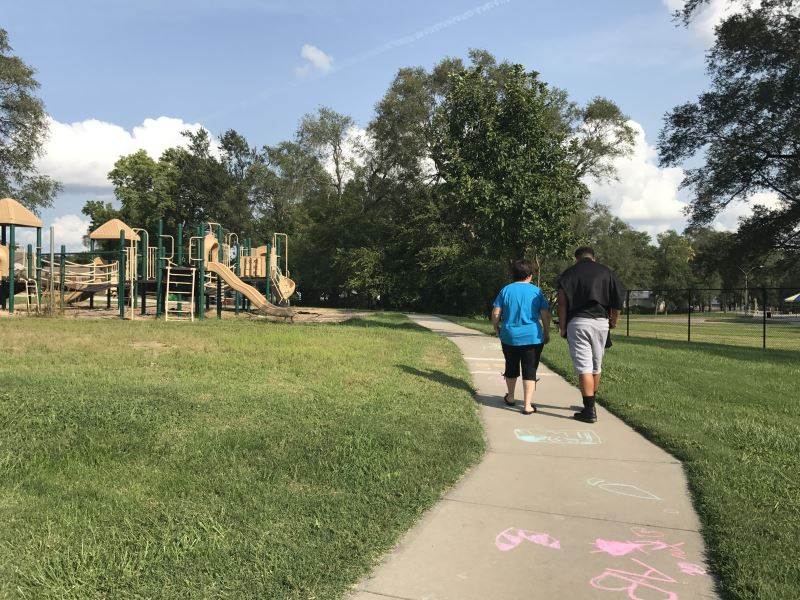Do you remember a person, maybe it was a teacher, a coach or a colleague early on in your career, who gave you advice and helped you learn the ropes? For many of the youth we serve, they haven’t had the opportunity to build relationships with adults who they trust. Our mentoring program is trying to change that.
According to the National Mentoring Partnership, those with mentors are 55% more likely to enroll in college and are 130% more likely to hold leadership positions later on in life. Mentoring guarantees our young people that there is someone who cares about them.
Meet Brenda and Lukas.
Brenda has been a long-time volunteer at the Cornerstones of Care – Gillis Campus, and before coming to campus, Lukas* grew up in the Kansas City area and spent time in a few different foster homes before receiving care at our 24/7 residential treatment program. They were paired in our mentorship program six months ago. “At first, I wasn’t sure how much a 14-year-old boy would talk to me, but he does. He’s been pretty open. He’ll mention when he gets in trouble at school, or if he’s been having a hard time,” says Brenda. “I know he didn’t get a ton of one-on-one time with adults before, and I think it’s important for everyone to have that.”
Becoming a mentor.
Brenda remembers becoming interested in being a mentor after watching an interaction between another long-time mentor and their mentee. “I’d be volunteering in one of the dorms, and whenever Sandy’s mentee would see her, he’d come running over to give her a hug … it just made me smile and think ‘I could do that.’”
Spending time together.
Brenda spends time with Lukas each week. A critical part of our mentorship program is having mentors who are committed to being involved regularly. “Commitment and consistency are key. These kids have trust issues and have so often been let down by adults. By being there when you say you will be there, and doing what you say you’ll do, you can give a child hope – hope that they can trust an adult and that adults will follow through,” says Vicky Leitnaker, Community Relations Manager who oversees the mentorship program.
When Brenda and Lukas spend time together, you can often find them shooting baskets on the basketball court, going to lunch or even just sitting and talking. “I’ll let him choose what we do. And now that we’re able to leave campus, we’ll go out to lunch. Last week, he said he wanted Chinese food and remembered a place he used to go with his previous foster family. Normally, I don’t like Chinese food, but it’s where he wanted to go and it ended up being pretty good. I think he liked showing me a place that I hadn’t been before.”
However, as Vicky says, “It’s important to keep things simple and have the outing not be about spending a lot of money.” Some other suggested things to do together are play a board game, work on a craft together, go to a museum or even go for a bike ride.
Forming long-lasting relationships.
Relationships are key for children and young adults. When they find someone that they can trust and build a relationship with, their life transforms for the better. And often times, they want nothing more than just to spend time with you or talk with you. Brenda is finding this out with Lukas. “This week, he told me that he thought he was going to live with his aunt and uncle in a couple of weeks and asked if I would still be his mentor … I really hope it works out!”
How to become a mentor.
We do have a list of requirements to become a mentor, but we can guarantee you that it will be an invaluable experience for both your mentee and you. Brenda has a piece of advice for anyone interested in mentoring. “Be patient and dedicated to it. It’s important to handle this as a long-term commitment that you’ll stick with.”
*Name has been changed to protect their identity.



